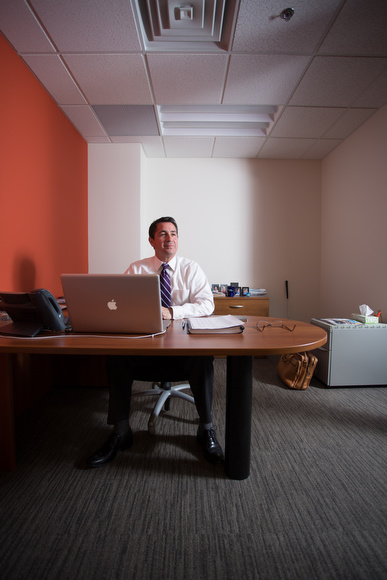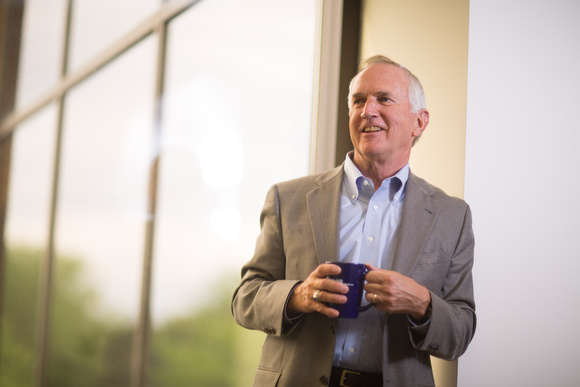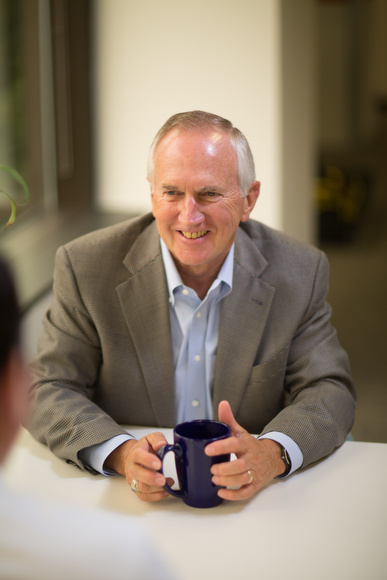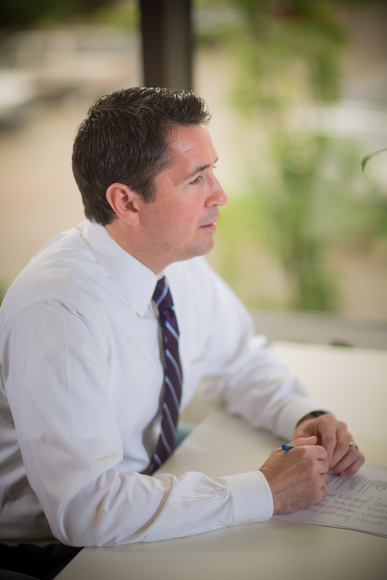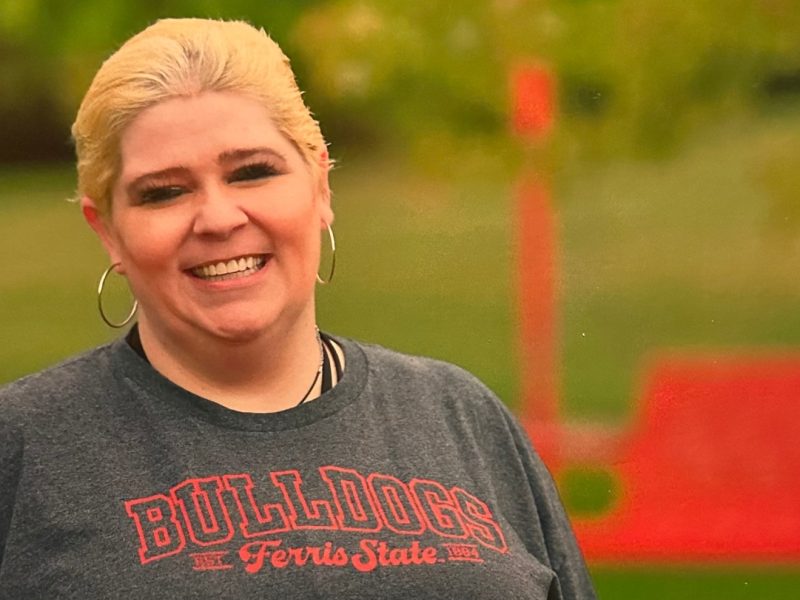Jandernoa Entrepreneurial Mentoring: Mentoring for the CEOs
Jandernoa Entrepreneurial Mentoring is a nonprofit dedicated to connecting young business leaders with more seasoned veterans and in the process, creating a community of executives who aid one another with good listening skills and sound advice.
Unless you are responsible for making payroll for your company, you don’t know what the responsibility is like. Being a business owner is tough. Popular culture is filled with CEOs making dashing decisions, leading the company through the business arena, battling it out with other companies to become successful and rich. This is not entirely true. More often than not, executives sit alone at their desks, faced with complex decisions, and shouldering the responsibility of the success or failure of the company alone.
And it’s lonely at the top. “It hasn’t been a welcoming environment,” said Mike Jandernoa. “We need to help them work through those issues…and look at ways to mitigate those risks.” To make the environment more welcoming, Jandernoa created Jandernoa Entrepreneurial Mentoring, a nonprofit dedicated to connecting young business leaders with more seasoned veterans and in the process, creating a community of executives who aid one another with good listening skills and sound advice.
“As a business owner you can’t vent or complain to your employees,” says Charlie Ferro, president of Diversified Medical Staffing. He is one of the current crop of mentees and owns a company that meets the requirements to participate in the program. All mentees must run businesses that meet or exceed $1 million in revenue per year. That sounds like a lot of success, but as businesses and the executives that lead them become increasingly good at what they do, there are fewer and fewer resources that they haven’t already outgrown and they become isolated.
Helping people connect, JEM is not your round-table forum, and it is not a networking opportunity. As a matter of fact, in many ways, it’s the opposite of a networking organization by virtue of its timeline and confidentiality. “It’s not a six-month commitment,” says Brandon Eisentrager, executive director of JEM. “It’s a three-year commitment.” And it’s not about instant gratification, or easy change. “We’re not about moving a career, we’re moving an individual and a company. It takes time. Some of the decisions that are made are not simple, and not short-term.”
“I think that the mentee and mentor relationship should be long-term,” says Bob Herr, former executive with Crowe Horwath. Herr started mentoring with the first class almost three years ago, teaming up with Ferro and meeting twice a month for the first few years. “I had an interest in being a mentor, and since I retired, I’m not very good at staying at home. I’d much rather be in a office with peers” he said. Herr has had a lot of experience building offices, growing the Grand Rapids office of Crowe and Horwath from 15 to 200 employees in his time there. He’s also had a lot of time to develop his business wisdom.
Ferro, with his medical staffing company, has experienced quite a bit of growth recently. “We’ve had some really strategic decisions that we’ve had to make — new office space, financial decisions.”
It’s these decisions and many others that Herr has had a chance to impact. Says Herr, “I saw my role as one gaining mutual trust so we could talk openly and frankly. I saw myself as a listener, to help challenge, think through strategy.” That doesn’t mean that Herr makes decisions for Ferro. That’s not what JEM is about. According to Herr, it’s more of a listening job. “As his business grows, when he has opportunities or is creating strategies, I can help him in the process of that decision making.”
In many ways, JEM is ultimately an organization about building trust. Through the structure and events supported by JEM, business leaders can develop trust in one another, and can share real problems without fear of being seen as weak, or having their leadership called into question. “We have confidentiality agreements,” says Ferro, “but I wanted to have somebody who I could go to with really unique questions about the company. Trust was built over time.” And it’s not just about the relationship between Herr and Ferro. If Ferro has a problem that Herr can’t help with, then there are other mentors that Herr knows who can be brought in to help. That’s the strength of the community building that JEM does. The mentees also get together as a group and talk candidly about problems and solutions that they face, sharing with their peers.
“I might have learned these things on my own, but I might have made some critical errors that might have been costly and I could have gone out of business” said Ferro. “During some of the growth periods when I didn’t have Herr there, I would make quick snap decisions while sitting at a desk, not putting a significant amount of time laying out the details, the costs and the the long term ramifications of things. That’s what Herr taught me, what he brought to my skill set. Making more deliberate, well informed decisions.” And every executive gets something different out of the program.
“From my perspective, looking at his business and what he’s been doing, it’s been a big success” said Herr. “I don’t see an end to it. After three years (the time commitment to JEM) with Charlie, I expect to continue meeting. I think that we have built a good friendship.”
Adam Bird is the Managing Photographer at Rapid Growth Media.
PHOTOS:
Business owner Charlie Ferro, left, talks to his mentor Bob Herr, right, a relationship started by the Jandernoa Entrepreneurial Mentoring program.
Photography by ADAM BIRD


